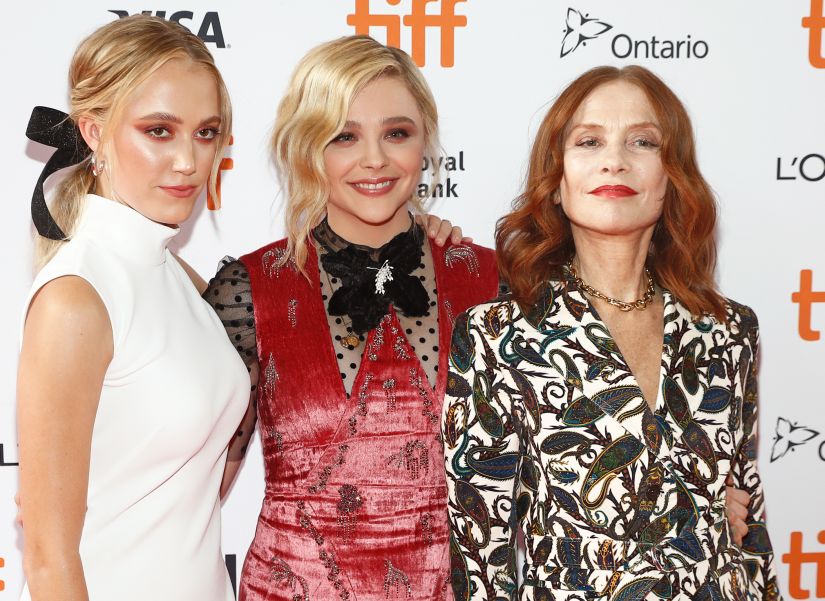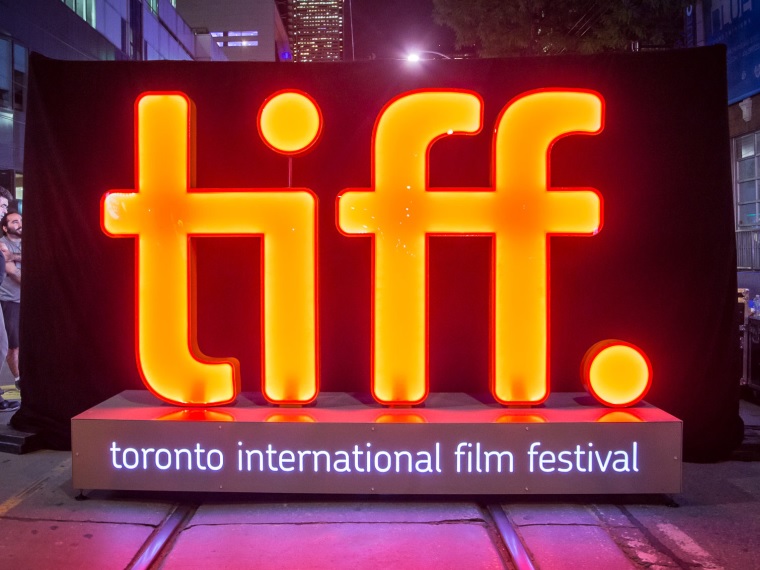Reckon we’re discussing the Oscars way too early? [caption id=“attachment_5143621” align=“alignnone” width=“825”] A TIFF 2018 sign sits on a street in Toronto, Canada. Image via Twitter[/caption] Well, with the Toronto International Film Festival 2018 (TIFF) underway, the Oscar-obsessed are already casting the ballots in their heads. The 2018 awards season has officially kicked off as hundreds of filmmakers and actors head to Canada’s largest city for the 43rd edition of what has easily become one of the most influential film festivals in the world. With Sundance too indie and untimely and Cannes too artsy and pompous, Toronto has emerged as a powerful launchpad for films hoping to compete at the Oscars. Over the last decade, TIFF has proved to be a much
better barometer of Oscar glory with its People’s Choice Award than Sundance’s Grand Jury Prize or Cannes’ Palme d’Or. The 2018 event will feature films by Oscar-winning directors like Alfonso Cuarón, Asghar Farhadi, Barry Jenkins, Damien Chazelle, Florian Henckel von Donnersmarck, Laszlo Nemes, Michael Moore and Steve McQueen; and starring Oscar-winning actors like Casey Affleck, Javier Bardem, Julianne Moore, Natalie Portman, Nicole Kidman, Penélope Cruz, Russell Crowe and Viola Davis among others. [caption id=“attachment_5143601” align=“alignnone” width=“825”]
Stills from various TIFF 2018 films (Top row, from L-R) Green Book, The Hate U Give, If Beale Street Could Talk and Monsters and Men. (Bottom row, from L-R) Maya, Roma, Hold the Dark and The Kindergarten Teacher. Image via TIFF[/caption] TIFF 2018 — adopting a more streaming-friendly attitude like Venice — began on Thursday evening with a small-screen Netflix production for its big-screen festival gala opener. David Mackenzie’s Scottish epic Outlaw King, starring Chris Pine as Robert the Bruce, is the first time TIFF has provided the opening gala slot to a release not intended for theatres. It is, of course, just one of eight Netflix films (Roma, The Land of Steady Habits, 22 July, The Kindergarten Teacher, Hold the Dark, Quincy and Girl) being screened at the festival with rival Amazon Studios entering the fray with four of their own productions (Beautiful Boy, Cold War, Homecoming and Life Itself). But the reason TIFF has grown into such a prominent platform for awards contenders has as much to do with its timing as its inclusiveness. Launched in 1976, TIFF was previously just an exhibition offering Canadian movie enthusiasts the chance to see the best films from the more prestigious film festivals around the world or as it was
first called the Toronto Festival of Festivals. North American film festivals were previously ignored by Hollywood studios afraid that early film screenings could hurt box office performance after their wider release. [caption id=“attachment_5143591” align=“alignnone” width=“825”]
(From L-R) Billy Howle, Chris Pine, director David Mackenzie, and Aaron Taylor-Johnson pose for photographs on the red carpet at the premiere of Outlaw King at TIFF 2018. (Nathan Denette/The Canadian Press via AP)[/caption] As TIFF happened right at the end of the summer blockbuster season, it offered Oscar-conscious studios the chance to shift their focus — and the perfect launching pad to market their films — to the critics and the Academy’s voters. It also maintained its populist appeal by eschewing a festival jury-adjudged honour for a more democratic People’s Choice Award determined by ordinary festivalgoers after public screenings. And Torontonians have developed a pretty solid track record of sniffing out Oscar contenders. In the last 10 years, quite a few People’s Choice Award winners have gone on to not just earn nominations at the Academy Awards but have also clinched the top prize; these include Slumdog Millionaire, The King’s Speech, 12 Years A Slave, Spotlight and La La Land (well, almost). Films being positioned for accolades this year include those tackling some pressing topical and weighty themes, like 22 July (a docudrama on white supremacist terrorism), Beautiful Boy (father-son biographical addiction drama), Hotel Mumbai (recreation of Mumbai’s horrific night on 26/11), Fahrenheit 11/9 (documentary centered around US President Donald Trump) and If Beale Street Could Talk, The Hate U Give and Monsters and Men (social commentary on police brutality). This edition will also include some esteemed filmmakers making their English-language debuts like Jacques Audiard with The Sisters Brothers (starring John C Reilly, Joaquin Phoenix and Jake Gyllenhaal), Xavier Dolan with The Death and Life of John F Donovan (starring Kit Harington, Jacob Tremblay, Natalie Portman, Susan Sarandon, Kathy Bates and Thandie Newton) and Sebastian Lelio with Gloria Bell (starring Julianne Moore, John Turturro and Michael Cera). [caption id=“attachment_5143581” align=“alignnone” width=“825”]
 (From L-R) Maika Monroe, Chloe Grace Moretz and Isabelle Huppert at the world premier of Greta at TIFF 2018. Reuters/Mark Blinch[/caption] TIFF 2018
will screen 343 films (255 features and 88 short films) from 83 countries. That’s 30,055 minutes of film in total. And the winner of the People’s Choice Award from among these contenders could perhaps answer an important question about the culmination of a year in film. So who will be played off the stage during their acceptance speeches at the 2019 Oscars?
(From L-R) Maika Monroe, Chloe Grace Moretz and Isabelle Huppert at the world premier of Greta at TIFF 2018. Reuters/Mark Blinch[/caption] TIFF 2018
will screen 343 films (255 features and 88 short films) from 83 countries. That’s 30,055 minutes of film in total. And the winner of the People’s Choice Award from among these contenders could perhaps answer an important question about the culmination of a year in film. So who will be played off the stage during their acceptance speeches at the 2019 Oscars?
With Sundance too indie and untimely and Cannes too artsy and pompous, TIFF has emerged as a powerful launchpad for films hoping to compete at the Oscars.
Advertisement
End of Article


)
)
)
)
)
)
)
)
)



